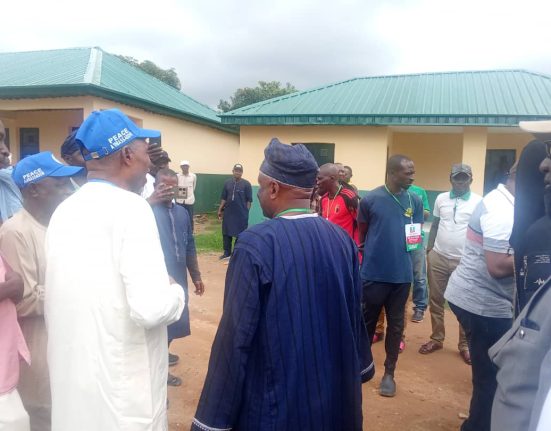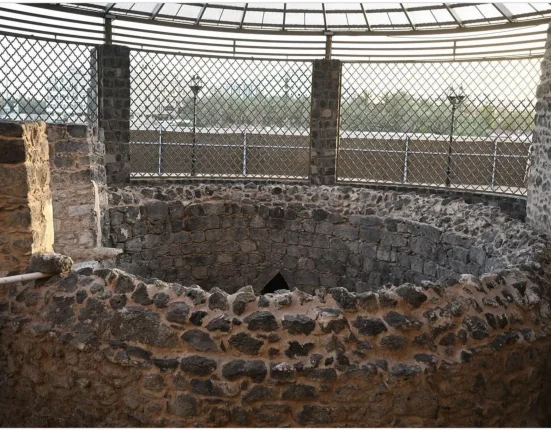The Federal Government is taking significant steps to establish a sustainable land administration system in Nigeria, Vice President Kashim Shettima has revealed.
Speaking at the National Land Conference 2025 in Abuja on Wednesday, Shettima—who was represented by the Deputy Chief of Staff to the President, Senator Ibrahim Hadejia—emphasized the urgent need to reform land governance in the country.
The conference, themed “Reforming Land Governance for Sustainable Development in Nigeria,” was jointly organized by the National Institute for Policy and Strategic Studies (NIPSS) and the Johnbull Amayaevbo Foundation.
Land Use Act Due for Urgent Review
The Vice President highlighted that the Land Use Act of 1978 has served as the legal framework for land ownership, management, and administration in Nigeria. However, he noted that despite its contributions, the Act has also presented systemic challenges that need to be addressed.
“Now 48 years old, the Act is undeniably due for review and reform,” Shettima stated. “The time has come for a thorough reassessment to identify necessary amendments and ensure its relevance in today’s evolving socio-economic landscape.”
He pointed out that experts have criticized the Act for hindering Nigeria’s socio-economic development and called for a comprehensive review to align land policies with the nation’s goals of sustainable growth, equity, and efficiency.
FG’s Reform Strategy
In response to these challenges, the administration of President Bola Tinubu inaugurated four reform task teams in January 2024 to develop a strategic blueprint for improving land administration. The aim is to streamline processes, making access to land more efficient, cost-effective, and transparent.
Shettima further revealed that the government is committed to establishing a National Land Commission, which would oversee land administration reforms. A draft executive bill for its creation has already been submitted to the National Assembly for consideration.
Stakeholders Call for Bold Land Governance Reforms
During the event, the Director-General of NIPSS, Prof. Ayo Omotayo, emphasized the importance of rethinking Nigeria’s land resource system.
“For us at the National Institute, what matters is developing Nigeria into what the founding fathers envisioned,” Omotayo said. “This conference is an opportunity to reflect, ask hard questions, and propose practical solutions.”
He stressed that for the Renewed Hope Agenda of the Tinubu administration to succeed, Nigeria must address land tenure security, land governance efficiency, and sustainable land management practices.
Similarly, Johnbull Amayaevbo, President of the Johnbull Amayaevbo Foundation, underscored the urgency of land reform in driving economic growth.
Despite Nigeria’s abundant land resources, Amayaevbo noted that the land governance system remains outdated and inefficient, ranking the country 169th out of 190 countries in property registration, according to the World Bank’s Ease of Doing Business Index.
Challenges and Key Proposals
Nigeria’s land governance faces multiple hurdles, including inconsistent policies, poor land registration systems, and administrative bottlenecks. According to the International Finance Corporation, only 3% of urban land in Nigeria is formally registered.
Additionally, the Food and Agriculture Organisation (FAO) reports that Nigeria loses 350,000 hectares of forest annually due to unsustainable land use.
To address these issues, the conference put forward several key proposals, including:
Establishing an Office of the Valuer-General to improve land valuation and pricing transparency.
Modernizing land administration laws to streamline bureaucratic processes.
Enhancing land tenure security to promote investment in agriculture and real estate.
Implementing sustainable land management practices to curb environmental degradation.
A Call for Action
Amayaevbo emphasized that the proposed reforms must be bold yet practical, visionary yet actionable. He called for inclusive policies that ensure no group is left behind in Nigeria’s land governance transformation.
“As we embark on this journey of reform, we must draw inspiration from global best practices while ensuring they are adapted to Nigeria’s unique socio-cultural and economic realities,” he said.
The National Land Conference 2025 is expected to become an annual platform for stakeholders to assess progress and propose new reforms for Nigeria’s land administration system.







